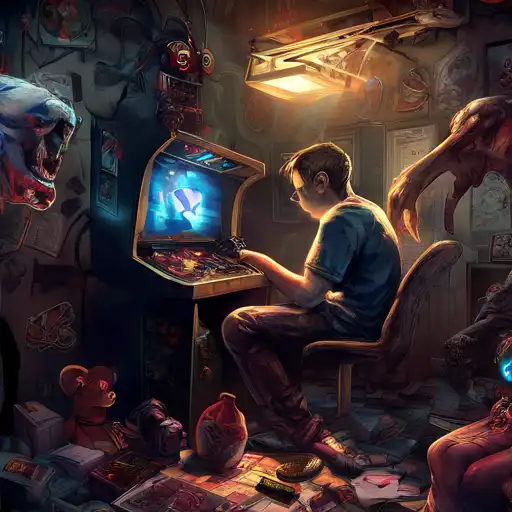Introduction to Gaming Addiction
Gaming addiction has become a significant concern in the digital age, affecting individuals across various age groups. This article delves into the psychological underpinnings of gaming addiction, shedding light on why some individuals are more susceptible than others.
The Role of Dopamine in Gaming Addiction
At the heart of gaming addiction lies the brain's reward system, primarily driven by dopamine. This neurotransmitter plays a pivotal role in how we experience pleasure and motivation. Games are designed to trigger dopamine releases, creating a cycle of reward and reinforcement that can lead to addictive behaviors.
Understanding the Reward System
The reward system in our brains is activated by achievements within games, such as leveling up or unlocking new items. This activation mirrors the response to natural rewards, making gaming a potent source of psychological satisfaction.
Psychological Profiles Prone to Addiction
Not everyone who plays video games develops an addiction. Certain psychological traits, such as impulsivity, social anxiety, and a tendency towards escapism, can increase the risk of gaming addiction. Understanding these traits can help in identifying and addressing potential addiction early.
The Escape Mechanism
For many, gaming serves as an escape from real-life stressors or dissatisfaction. This escapism can become a crutch, leading to excessive gaming as a means of avoiding underlying issues.
Prevention and Management Strategies
Addressing gaming addiction requires a multifaceted approach, including setting healthy boundaries, seeking alternative forms of satisfaction, and, in some cases, professional help. Recognizing the signs of addiction early is crucial for effective management.
Building Healthy Gaming Habits
Establishing a balanced relationship with gaming involves setting time limits, engaging in other hobbies, and ensuring that gaming does not interfere with daily responsibilities or social relationships.
Conclusion
Gaming addiction is a complex issue rooted in the interplay between game design and individual psychology. By understanding the psychological triggers and risk factors, individuals and caregivers can take proactive steps towards prevention and recovery. For more insights into mental health and behavior, explore our mental health resources.
